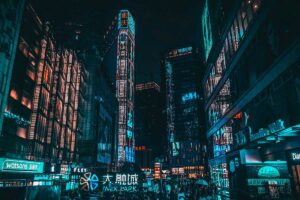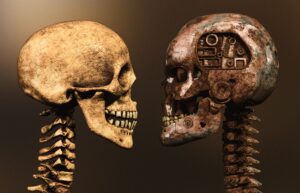A few years ago, I asked Hakim, one of many Muslim children who are serving judicial sentences in juvenile centers, if he practiced his religion, to which he answered: “religion is not practiced, it is lived”. It´s not hard to imagine how shocked I was after hearing that answer.
Hakim arrived at age seven to northern Spain, without any family or money, with the idea of having a better life than the one his parents had back in Morocco. My relationship with Hakim allowed me to have a deeper insight into his history: he always spoke of God, of Mohamed and the Quran, so the idea that a 14 year old boy –which whom I believed was completely uprooted from his family and from any relationship that could teach him the Muslim doctrine– could have such an elaborate concept of religiosity, spun in my head.
The curious thing was that this wasn´t the only case. As time went by I got to know more young Maghrebis1 with the same ideas on religion, and with profound spirituality. I couldn’t tell if the discipline they have regarding faith, prayer, food and many aspects is so pronounced in spite or due to having committed a crime.
1 The Maghreb corresponds to the northern strip of África, including Morocco,Tunisia and Algeria.
That´s how I started to observe on a detailed manner what is the relevance the Ramadan has on these young people, since it is not just a month of rigorous fasting, from dusk till dawn: it is about physically fasting and purifying the body, the mind, and the spirit.
The young ones in general say it´s a month that helps them “be in the skin of the poor ones” and to grow spiritually. One of the educators from one of these youth centers says that it is a time dedicated to inner reflection, coming together, and family harmony. But what happens when one is far from their family and all that is culturally close?
The Ramadan, a dominant cultural symbol, which nature is to unify the Muslim community, would have to be seen more as an annual process of physical and spiritual purification. To these young migrants, it is a moment of cultural vindication, to show themselves as different from everyone else, and to consolidate their identity as Muslims.
Of course this question has been roaming my mind for the longest time, that´s why I´ve considered youth centers as a little observatory in which societal conflicts can be analyzed, especially cultural, interracial and integration issues, topics of fundamental interest in the contemporary context worldwide. I want to say that from the youth centers I´ve seen, one could access a “bubble” of social symptoms that speak of a complex and wide reality.
One of these centers, located in the Basque Country, is in reality an educational non-profit association that helps people in risk of exclusion, whether victims of gender-based violence or parental abuse, jailed victims and victimizers, and young perpetrators, amongst others. They opened their first center in Biscay over 25 years ago, dedicated to aiding and supervising young people that had to comply a judicial measure in internment. Not long ago the only reformatory in the Basque Country (stablished in Amurrio) had closed; consequently, authorities had to send the young people outside of the community, mainly to Zaragoza, Valencia, and Catalonia, and from that need this space was developed.
One of these centers, located in the Basque Country, is in reality an educational non-profit association that helps people in risk of exclusion, whether victims of gender-based violence or parental abuse, jailed victims and victimizers, and young perpetrators, amongst others.
This first center, located in Ortuella, quickly ran short: first because of the number of places available and then because young people with further restricted liberties arrived, since juvenile courts in which only internment measures were issued started getting formalized. Since then, the justice area has grown and has expanded throughout the territory, opening centers in Álava, Guipuzcoa, and Navarra. Times have changed, and with them some laws. In 1992 a law from 1948 was declared illegal, a law inherited from the end of the war, and provisional changes were made to allow for the trial run of new measures and proceedings, such as mediation programs and extrajudicial reparations, and provision in benefit of the community measures.
Since then, improvements to the Organic Law have been incorporated, regarding the rights of children and regarding the execution of such measures. As so, the Organic Law 5/2000 defines the character of the judicial measures and assigns the responsibilities in its execution. From my point of view, this is the most important characteristic and the one that carries a radical change, since the Law is the same for all of the territory, but it´s executed differently in accordance with the Autonomous Community.
The Basque Country poses that the judicial processes by which young people go through should be “preventive-special”, oriented to effective reinsertion.
Of course my intention isn´t to talk about the spirit of the Law from 2000 nor from its posterior modifications, but I do consider important to point out that, at least in the Basque Country, the main objective of the judicial processes by which young people go through should be “preventive-special” oriented to the effective reinsertion. This idea is based on criteria mainly found in the educational field, not in the judicial one. This educational association has the task of accompanying young boys that could be minors or not (they´re in the centers from age 14 to age 21) in their process of compliance with the judicial measures imposed by a judge.
I have to say that, as a Mexican, I was profoundly surprised with all of this. Centers in which every boy has their own room, they´re feed five times a day, they´re taught to be independent and autonomous, and while they go through that process, they have a monthly stipend to buy tobacco or any whim… This was already too much, but the summun came when I became fully aware that the Article 16 from the Constitution is respected here:
Religious, ideological and cult freedom is guaranteed for individuals and communities, without any further limitation in their manifestations than the one necessary to maintain public order protected by law.
So once exposed the context of these centers, I must go back to the case of young Muslims. Regarding that, I must say that in the time I´ve been visiting the centers, I´ve found mostly Maghrebis (the Maghreb corresponds to the northern African strip, including Morocco, Tunisia, and Algeria), even though also Indians and Pakistanis have arrived. In all of these cases, the Muslim community´s prayer times and diet have been respected and even, if the educator deems it necessary, an Imam´s2 aid is sought to bring spiritual aid to the young ones.
With that said, regarding the Ramadan, during such a special month for all Arabs, they´re allowed to practice it with total freedom in every space in the centers, even if it implies an extra responsibility for caretakers, since they´re the ones entrusted in aiding the young people to properly carry out the rules of this festivity, while also complying with the ordinances of the internment centers.
For example, they´re allowed to sit at the table without eating, or they´re allowed to stay if they have to perform outdoor activities (that are generally demanding), although all of this does not mean that they are on “a holiday”; if they have to go to school or work, they have to fulfill their daily obligations. We must remember that they are children that are being prepared to go out to the real world. But, on the flip side, when it´s about young people that are in day centers or in probation, I found that while they stop eating during the day, respecting fasting schedules, at night they smoke joints, party, and some even shoplift, which means a setback in their process, since with these gaps they miss interviews, work, school or their general obligations.
2 An Imam, is a leading position in Islam. The term is used to call the person who leads the collective prayer in a mosque and in a Muslim community among Sunni Muslims.
Another important characteristic of the Ramadan is almsgiving. In the case of putting oneself in the poor man´s shoes, the idea also encompasses being detached and giving what one has to the less favoured.
Another important characteristic of Ramada is almsgiving. In the case of putting oneself in the poor man´s shoes, the idea also encompasses being detached and giving what one has to the less favoured. What I´ve found here, is that this precept isn´t very pleasant for everyone. In fact, more than one refers that even if giving alms is an obligation, in this case they´re poorer. Thus I´ve developed the impression they´re quite unclear as to what it means to be charitable.
Of course, if during adolescence what it means to do the Ramadan it is not learnt, when these young people finish their judicial measure and form a family of their own, their poor formation could impact their immediate future. One of the cases I´ve found was the one from a child that arrived from Morocco at age 7, fleeing the beatings from his father. After living in foster homes and minor centers, when he was able to finalize his judicial procedure and form a family of his own, he became a beating father, that during Ramadan would beat his wife a little less, because he could only do so at night.
Up until now I´ve considered that displacement is part of the change in the meaning of the Ramadan for the new generations, since issues such as migration, language and uprooting are influential, as most of them are young people that arrived by themselves to the peninsula and can´t rely on any family in this country.
Finally, the Ramadan, a dominant cultural symbol, which nature is to unify the Muslim community, that would have to be seen more as an annual physical and spiritual purification process, is to these young migrants a moment of cultural vindication, to show themselves as different from everyone else, and to consolidate their identity as Muslims.
Is a Mexican living in Euskadi because of those things of love. Ethnohistorian from the National School of Anthropology and History (ENAH), with postgraduate studies at the Metropolitan Autonomous University (UAM), in relation to Religious Anthropology. She currently works in a juvenile justice center specialized in child-parent violence.


